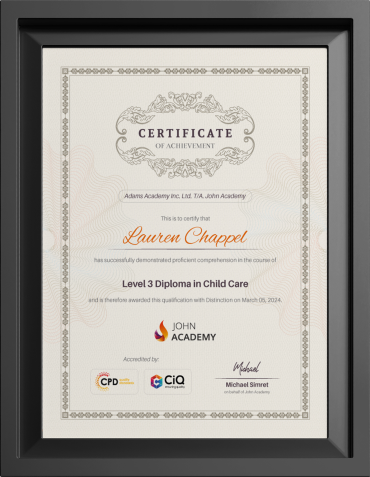
Advancing your career as an educator, therapist, or psychologist is a smart decision, especially if you’re craving for growth and development as a professional. Not to mention, of course, the opportunity to earn more while making a difference in other people’s lives.
If you already have a bachelor’s degree in education, psychology, or other related fields, you might want to consider becoming an educational therapist (ET) to further your profession.
Table of Contents
What Is An Educational Therapist?
It may or may not be the first time you’ll encounter the term educational therapist. Regardless, you’re probably still a bit confused about what an ET does.
First of all, it’s not the same as tutoring because being an ET requires specific skills and a level of education that makes them competent enough to handle adults and children with learning problems.
In a nutshell, an ET is an educational professional who works with children and adult learners with different types of learning problems. Such problems could be any of the following:
- Attention deficit disorder (ADD)
- Difficulties in reading, spelling, math, and written language
- Dyslexia
- Tourette syndrome
- Attention deficit hyperactivity disorder (ADHD)
- Asperger’s syndrome
- Autism spectrum disorder (ASD)
The scope of who an ET can help is practically boundless because struggling learners don’t always need to have a disorder to be categorised as one. Sometimes, low academic self-esteem can be a sufficient reason for someone to look for an educational therapist that can help them.
How An Educational Therapist Can Help
Unlike tutors and regular teachers, ETs are trained and proficient in handling patients suffering from social and emotional complications that may result from their learning disorders. Education therapists are also capable of combining different teaching methods and therapeutic techniques to suit the learners’ needs.
In addition, it’s also expected that you’ll often work closely with other professionals, such as guidance counsellors, psychologists, behaviourists, psychiatrists, and therapists, to better assess the condition and progress of the patients.
Sounds interesting yet complicated? Well, you’re not the only one. But once you understand what being an educational therapist is all about, you’ll definitely want to become one.
Where To Find Information On Becoming An ET
Before anything else, though, you’ll need to know where and how to get started. Perhaps the most common question you’d ask is where to find information on becoming an educational therapist. Here are some ways:
1. Searching Online
One significant advantage of today’s generation is having the internet ready for their disposal. As such, it’s easier, faster, and more convenient to find information with just a few clicks and taps.
One good starting point is to look for learning and educational specialist courses. Expectedly, you’ll be swamped with hundreds or thousands of results, and the key is to identify which of that information would be helpful enough as you carry on with your quest.
There’ll be schools, universities, and private learning centres that would be offering an educational therapy course or certificate. They may have different requirements and curriculums, but, essentially, one important and typical requirement you may need to prepare or have prior to enrolling is a bachelor’s degree majoring in education, psychology, special education, early childhood development, and other related fields.
Other skills required to become an ET may include the following:
- Strong writing and oral communication skills
- Organisational and proofreading skills
- Ability to connect with struggling learners
- Strong emotional skills
- Ability to read and evaluate body language
- Keen attention to details
- Personal skills and characteristics, such as compassion, patience, and understanding
If you’re already considering this career path, chances are you’re already in a similar field, and you want to broaden your scope of work and knowledge. Becoming an educational therapist is indeed a rewarding career decision that would pave the way for more significant realisations, broader opportunities, and higher earning possibilities.
2. Taking Online Courses And Certifications
Even before the pandemic hit, online courses and certifications are already widely available. Such an option gives students and professionals a flexible chance to learn and further their careers without attending physical classes. Online and remote learning is quite an advantage for people who keep a day job, among other responsibilities in life.
If you want to know where to find information on becoming an educational therapist, another resource to try is schools and institutions offering short courses and certifications online. You may need to exert more effort when doing your research because not many colleges and universities offer such courses. For this reason, most aspiring ETs would turn to teacher training courses and workshops that could prepare them for the rigidity and seriousness of becoming an educational therapist.
Examples of such short courses and workshops are the following:
- Visual processing workshop
- Auditory processing workshop
- Dyslexia cognitive remedial courses
- Mindful visualisation
While these short courses may not be required to be certified as an ET, you can use the skills and knowledge you’ve learned when it’s already time for you to tackle the courses associated with an ET program. If you’re able to find a school or university that offers ET courses, some of the units you can expect to focus on would be neuropsychological principles in education, introduction to mild to moderate disabilities, Math strategies for students with mild to moderate disabilities, and educational research.
You’ll also need to complete a supervised internship in a school setting by the end of your courses. You’ll be expected to perform assessments and design developmental and instructional sequences for learners with disabilities. Lastly, you’ll be writing a thesis as part of culminating activities for the course.
3. Association Of Educational Therapists
The Association of Educational Therapists (AET) is an organisation committed to setting the standards for the professional practice of educational therapy. AET is the governing body that’s dedicated to defining ethical practice standards. They also coordinate and work with schools and universities to provide training programs in educational therapy.
There’s currently no state licensure for ETs, but the AET observes professional membership requirements that all organisation members should meet. In this way, educational therapists can demonstrate their substantial experience, preparation, and expertise in the said field.
The Role Of AET
As mentioned, the AET can also be a good starting point when finding information on becoming an education therapist. There are helpful resources that you could read to familiarise yourself with the process of getting certified as an ET. Moreover, AET-approved programs are available for aspiring ETs who are looking to expand their career.
You can check the website for affiliated schools and institutions where training programs are available. However, these schools are limited, and you may find it hard to locate one near your area. If so, you can opt for online learning modes offered by AET-approved schools.
You can also become a member of the organisation by signing up on their website. Membership options vary depending on your level. If you have completed the academic requirements, you can become an associate educational therapist member.
Other membership options are offered to students, general members, and other allied professionals such as paediatricians, language and speech therapists, as well as other licensed professionals working closely with individuals with learning disabilities.
Employment Opportunities For Educational Therapists
You might be wondering what could be the progression of your career once you’ve completed your ET course. Given that education will always be a sought-after sector despite the economy’s state, being an educational therapist can yield rewarding employment opportunities for you.
Also, one good thing about choosing this profession is that you can be flexible with your work schedule. You may or may not opt to work for schools, government sectors, or other learning centres that are consistently hunting professionals in your line of work.
As mentioned, you’ll be working closely with allied professionals in the field of health and sciences. As such, you have the chance to work in hospitals, clinics, and therapy centres. You can be introduced to a broader perspective and, who knows, you might be planning to explore a career in healthcare. If so, an ET certification can surely give you a better shot.
If you want to have more income, you can work in schools and clinics and then offer private services after office hours. Since online classes are quite the new norm these days, you can create a website for your ET services and offer your skills and competency to people who need it. In this regard, you can see how being an educational therapist can advance not just your career but also your financial capacity.
Conclusion: To A More Rewarding Career Path
Becoming an educational therapist isn’t only a smart decision to earn more, but it’s also a rewarding career path to take if you want to make a difference. You get to work with people struggling with their learning disabilities, hence you can make a difference in how they grow, develop, and learn as students. By helping the disabled overcome their troubles and disabilities, you can also help their families easily deal with the challenges.
Learning is supposed to be culminating and fun, but for people who find it hard to focus and learn, this isn’t always the case. With you by their side, they can discover ways and techniques to learn despite the struggles they’re dealing with.
Now that you know where to find information on becoming an educational therapist, the choice is yours. Will you be up for the challenge? Do you think you have what it takes to work with unique and amazing learners? Find out for yourself and take the initiative today.
Read more blogs
- How To Become A Detective In The UK?- The Ultimate Guide
- How Research Papers Contribute to College Learning
- Top 7 SEO Blogs You Should Read for Higher Education Marketing
- Smart Tech Maintenance Tips to Enhance Your Learning Experience
- How to Strengthen Leadership Skills Through Online Learning
- 6 Smart Ways Students Can Use Crypto for Budgeting and Savings
- How the CIMA SCS Exam Mirrors Real-World Business Challenges
- Essential Tips for Maintaining Food Hygiene
- Why Am I Crying So Much? Emotional Triggers Explained
- What Key Elements Shape Effective Team-Building Workshops?



